Description
ABSTRACT
Economic Termination of Employment and some Practices in Employment Relations in Nigeria
Professor Israel Worugji*, Anthony Ekpoudo** and John Egbe***
This contribution addresses some issues of economic terminations of contract of employment and employment practices that are antithetical to job security and good employment relations in Nigeria. It in particular, focuses on redundancy, transfer of undertaking, lay-off, short-time, outsourcing and casualisation of labour as forms of employment practices that impact negatively on job security, decent work and sustainable industrial relations. The paper raises the issues of the extent to which the law relating to redundancy and these labour practices in Nigeria are in tandem with the International Labour Organization (ILO) standards and other international best practices. The work exposes the fact that there is no comprehensive law regulating redundancy and these retrogressive employment practices in Nigeria; it is primarily a function of contract of employment. The only legislation which is the Labour Act 2004 is limited in scope. The Act focuses mainly on manual labour employment relations. Even within its limits and scope, its provisions are not in tandem with the ILO standards and international best practices. The paper therefore calls for a new face of the law that will holistically address the issues of redundancy and the practices that impact negatively on right to work and security of employment, without necessarily compromising the business interest and managerial prerogative of the employer. This has become imminently necessary considering the state of unemployment and the demand for job security and decent work for sustainable socio- economic development.
INTRODUCTION
Economic globalisation and recession have continued to produce loss of job and leading to high level of unemployment in Nigeria. This is not only among the less mobile and less adaptable sections of the labour force, the older and unskilled but also white collar workers whose skills lie in their knowledge of one particular industry or firm.1 Thus the need to minimise undue loss of job by workers, exploitation of the workers and income security, at the same time sustaining managerial prerogative to manage the enterprise have remained central issues2 in employment relations and sustainable industrial relations and politics in Nigeria. It is within this context that this contribution focuses on economic terminations of employment and some other labour practices that are antithetical to job and income security; and sustainable industrial relations in Nigeria. It in particular focuses on redundancy, transfer of undertakings, short- time work, lay-off, outsourcing and casualisation of labour as forms of dealings with dependent labour that impact negatively on job security and workers’ rights in employment relations in Nigeria.
*Ph.D., LL.M, BL. Professor of Law, University of Calabar, Calabar, Nigeria.
** LL.M, BL. Lecturer and Doctoral candidate, Faculty of Law, University of Calabar, Calabar, Nigeria.
***LL.M, BL. Lecturer, Faculty of Law, University of Calabar, Nigeria.
- See Rideout, R. W., Principles of Labour Law (Sweet & Maxwell, London 1979) 157.
- Rideout, ibid 157; Cyril Grunfeld, The Law of Redundancy (Sweet & Maxwell, London 1980) 1-31; Davies, P. and Freedland M., Labour Law Text and Materials (2nd edn., 1984) 394-396; Fryer A., ‘The Myths of Redundancy Payment Act’ (1973) 2 ILJ I; and Painter R.W., Holmes A. & Migdal S., Cases and Materials on Employment Law (3rd edn., Blackstone, London 2000) Chapter 7.

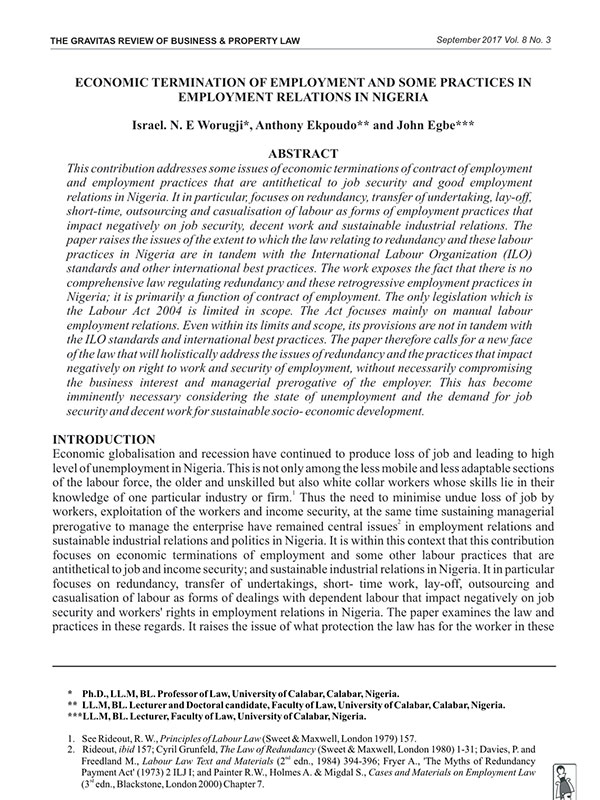
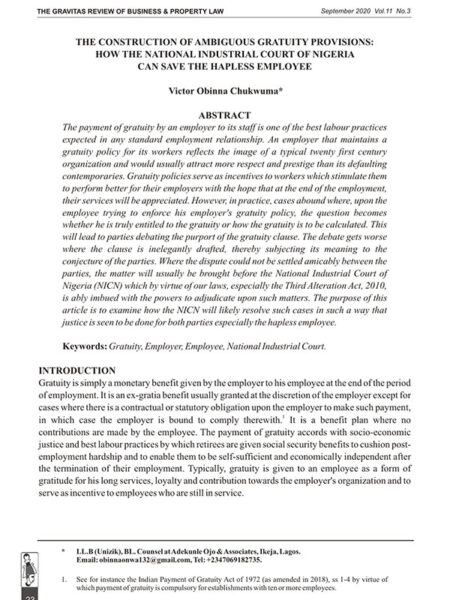
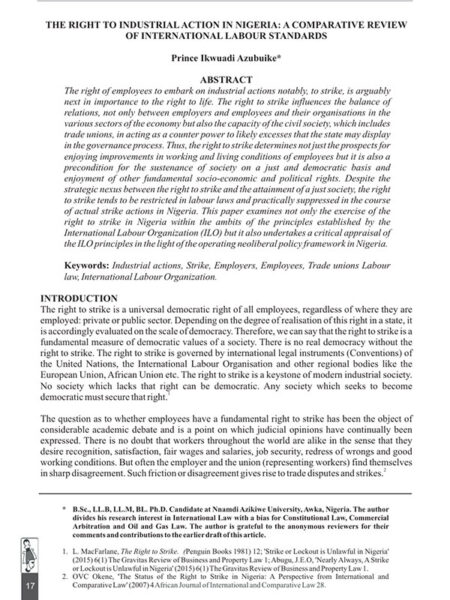
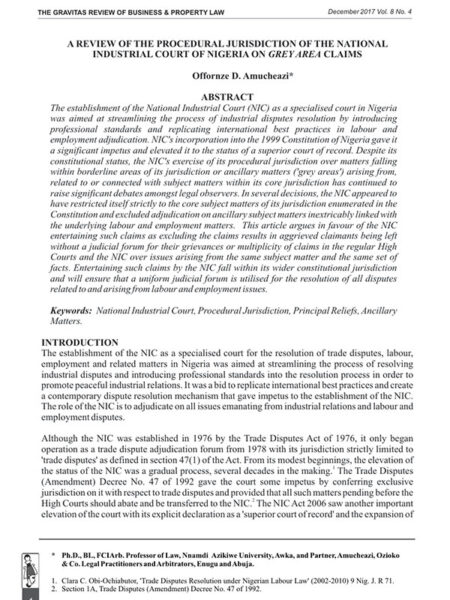
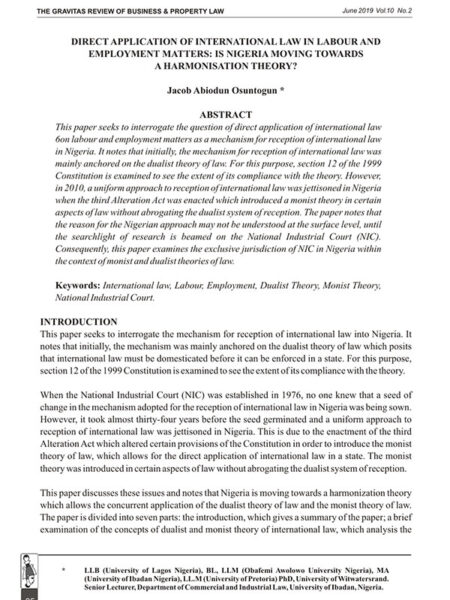


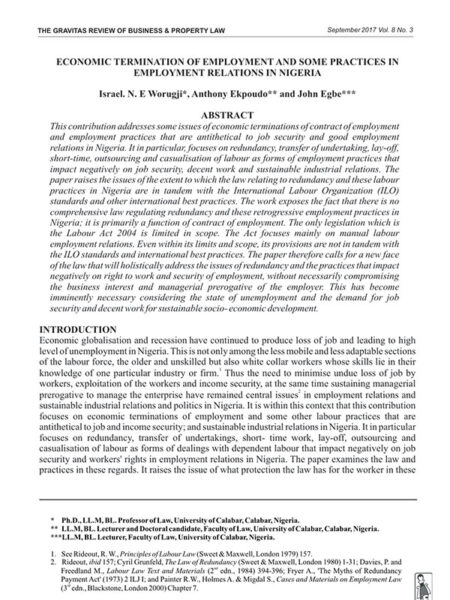
Reviews
There are no reviews yet.